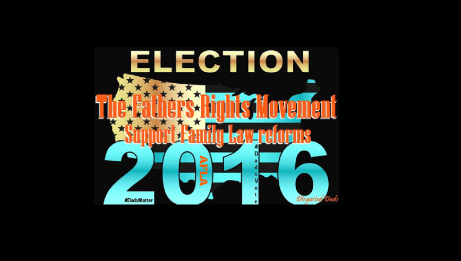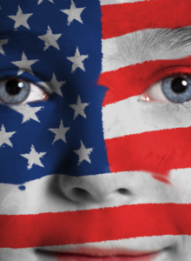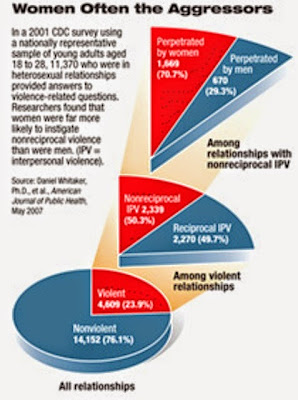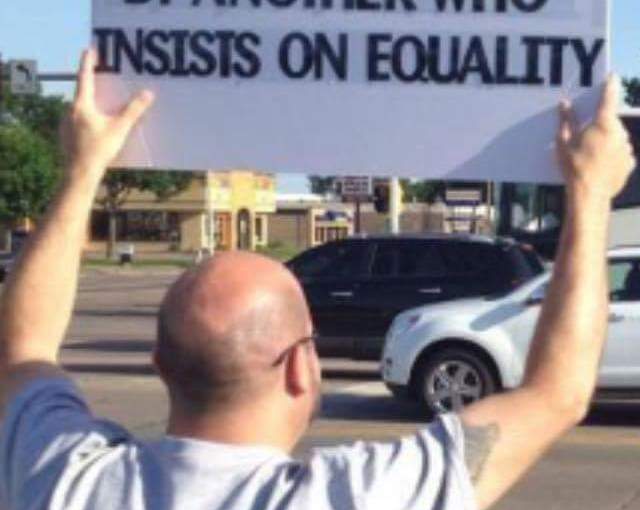
The Crisis of Fatherhood

 Some would argue that America is rapidly becoming a fatherless society, or perhaps more accurately, an absentee father society.
Some would argue that America is rapidly becoming a fatherless society, or perhaps more accurately, an absentee father society.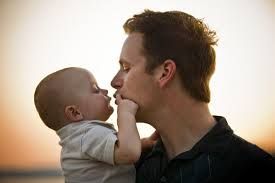 The importance and influence of fathers in families has been in significant decline since theIndustrial Revolution and is now reaching critical proportions. The near-total absence of male role models has ripped a hole the size of half the population in many urban areas. For example, in Baltimore, only 38 percent of families have two parents, and in St. Louis the portion is 40 percent.
The importance and influence of fathers in families has been in significant decline since theIndustrial Revolution and is now reaching critical proportions. The near-total absence of male role models has ripped a hole the size of half the population in many urban areas. For example, in Baltimore, only 38 percent of families have two parents, and in St. Louis the portion is 40 percent.
Across time and cultures, fathers have always been considered essential—and not just for their sperm. Indeed, no known society ever thought of fathers as potentially unnecessary.Marriage and the nuclear family—mother, father, and children—are the most universal social institutions in existence. In no society has the birth of children out of wedlock been the cultural norm. To the contrary, concern for the legitimacy of children is nearly universal.

As Alexander Mitscherlich argues in Society Without A Father(link is external), there has been a “progressive loss of the father’s authority and diminution of his power in the family and over the family.”
“If present trends continue, writes David Popenoe(link is external), a professor of sociology at Rutgers University, “the percentage of American children living apart from their biological fathers will reach 50% by the next century.” He argues “this massive erosion of fatherhood contributes mightily to many of the major social problems of our time…Fatherless children have a risk factor of two to three times that of fathered children for a wide range of negative outcomes, including dropping out of high school, giving birth as a teenager and becoming a juvenile delinquent.”

According to David Blankenhorn, author of Fatherless America,(link is external) chair of the National Fatherhood Initiative and founder/president of the Institute for American Values, organization, and research conducted by Popenoe and scores of other researchers:
- Approximately 30% of all American children are born into single-parent homes, and for the black community, that figure is 68%;
- Fatherless children are at a dramatically greater risk of drug and alcohol abuse, mental illness, suicide, poor educational performance, teen pregnancy, and criminality, according to the U.S. Department of Health and Human Services, National Center for Health Statistics.
- Over half of all children living with a single mother are living in poverty, a rate 5 to 6 times that of kids living with both parents;
- Child abuse is significantly more likely to occur in single parent homes than in intact families;
- 63% of youth suicides are from fatherless homes according to theU.S. Bureau of the Census;
- 72% of adolescent murderers grew up without fathers. 60% of America’s rapists grew up the same way according to a study by D. Cornell (et al.), in Behavioral Sciences and the Law;
- 63% of 1500 CEOs and human resource directors said it was not reasonable for a father to take a leave after the birth of a child;
- 71% of all high school dropouts come from fatherless homes according to the National Principals Association Report on the State of High Schools;
- 80% of rapists motivated with displaced anger come from fatherless homes according to a report in Criminal Justice & Behavior;
- In single-mother families in the U.S. about 66% of young children live in poverty;
- 90% of all homeless and runaway children are from fatherless homes;
- Children from low-income, two-parent families outperform students from high-income, single-parent homes. Almost twice as many high achievers come from two-parent homes as one-parent homes according to a study by the Charles F. Kettering Foundation.
- 85% of all children that exhibit behavioral disorders come from fatherless homes according to a study by the Center for Disease Control;
- Of all violent crimes against women committed by intimates about 65% were committed by either boy-friends or ex-husbands, compared with 9 % by husbands;
- Girls living with non-natal fathers (boyfriends and stepfathers) are at higher risk for sexual abuse than girls living with natal fathers;
- Daughters of single mothers are 53% more likely to marry as teenagers, 111% more likely to have children as teenagers, 164% more likely to have a premarital birth and 92% more likely to dissolve their own marriages.
- A large survey conducted in the late 1980s found that about 20% of divorced fathers had not seen his children in the past year, and that fewer than 50% saw their children more than a few times a year.
- Juvenile crime, the majority of which is committed by males, has increased six-fold since 1992;
- In a longitudinal study of 1,197 fourth-grade students, researchers observed “greater levels of aggression in boys from mother-only households than from boys in mother-father households,” according to a study published in the Journal of Abnormal Child Psychology.
- The Scholastic Aptitude Test scores have declined more than 70 points in the past two decades; children in single-parent families tend to score lower on standardized tests and to receive lower grades in school according to a Congressional Research Service Report.
Blankenhorn argues that America is facing not just the loss of fathers, but also the erosion of the ideal of fatherhood. Few people doubt the fundamental importance of mothers, Popenoe comments, but increasingly the question of whether fathers are really necessary is being raised and said by many to be a merely a social role that others-mothers, partners, stepfathers, uncles and aunts, and grandparents can play.
“The scale of marital breakdowns in the West since 1960 has no historical precedent that I know of,” says Lawrence Tone, a noted Princeton University family historian, “There has been nothing like it for the last 2,000 years, and probably longer.” Consider what has happened to children. Most estimates are that only about 50% of the children born during the 1970-84 “baby bust” period will still live with their natural parents by age 17-a staggering drop from nearly 80%.
Despite current interest in father involvement in families, an extremely large proportion of family research focuses on mothers and children. Health care agencies and other organizations exclude fathers, often unwittingly. Starting with pregnancy and labor and delivery most appointments are set up for mothers and held at times when fathers work.
The same is true for most pediatric visits. School records and files in family service organizations often have the child’s and mother’s name on the label, and not the father’s. In most family agency buildings, the walls are typically pastel colors, the pictures on the wall are of mothers, flowers and babies, the magazines in the waiting room are for women and the staff is predominantly female. In most welfare offices, fathers are not invited to case planning meetings, and when a home visitor is greeted at the door by a man, she often asks to speak with the mother. Given these scenarios, fathers are likely to get the message that they are invisible or irrelevant to their children’s welfare, unless it involves financial support.
Popenoe and others have examined the role of fathers in raising children and found there are significant differences than that for mothers. For example, an often-overlooked dimension of fathering is play. From their children’s birth through adolescence, fathers tend to emphasize play more than caretaking. The play is both physically stimulating and exciting. It frequently resembles an apprenticeship or teaching relationships, and emphasizes often teamwork and competitive testing of abilities. The way fathers play affects everything from the management of emotions to intelligence and academic achievement. It is particularly important in promoting the essential virtue of self-control.
A committee assembled by the Board of Children and Families of the National Research Council, concluded “children learn critical lessons about how to recognize and deal with highly charged emotions in the content of playing with their fathers. Fathers, in effect, give children practice in regulating their own emotions and recognizing others’ emotional clues.”
At play and in other realms, fathers tend to stress competition, challenge, initiative, risk taking and independence. Mothers, as caretakers, stress emotional security and personal safety. Father’s involvement seems to be linked to improved quantitative and verbal skills, improved problem-solving ability and higher academic achievement for children. Men also have a vital role to play in promoting cooperation and other “soft” virtues. Involved fathers, it turns out according to one 26 year longitudinal research study may be of special importance for the development of empathy in children.
Family life-marriage and child rearing-is a civilizing force for men. It encourages them to develop prudence, cooperativeness, honesty, trust, self-sacrifice and other habits that can lead to success as an economic provider by setting a good example.
Mark Finn and Karen Henwood, writing about the issue of masculinity and fatherhood, in the British Journal of Social Psychology, argue that the traditional view of masculinity, with its focus on power, aggression, economic security, and “maleness”, and the emerging new view of fatherhood, which incorporates many aspects of motherhood is a source of struggle for many men who become fathers.
In a study of fatherhood in popular TV sitcoms, Timothy Allen Pehlke and his colleagues concluded that fathers are generally shown to be relatively immature, unhelpful and incapable of taking care of themselves in comparison with other family members. In addition, the researchers found that fathers often served as the butt of family members’ jokes. All of these characterizations, while the intention may be humor, depicted fathers as being socially incompetent and objects of derision.
In a study of depictions of fathers in the best selling children’s picture books, researcher Suzanne M. Flannery Quinn concluded that of the 200 books analyzed, there were only 24 books where the father appears alone, and only 35 books where mother and father appear together. The author concludes, “because fathers are not present or prominent in a large number of these books, readers are given only a narrow set of images and ideas from which they can construct an understanding of the cultural expectations of fatherhood and what I means to be a father.”
It seems to me that the issue of the decline of fatherhood and the problem of the male identity crisis are inextricably intertwined.
In my Psychology Today article, “Our male identity crisis: What will happen to men?” I said, “In a post-modern world lacking clear-cut borders and distinctions, it has been difficult to know what it means to be a man and even harder to feel good about being one. The many boundaries of a gendered world built around the opposition of work and family-production versus reproduction, competition versus cooperation, hard vs. soft-have been blurred, and men are groping in the dark for their identity.”
Overwhelmingly, the portrayal of men and the male identity in contemporary western societies is mostly negative. Men today are extensively demonized, marginalized and objectified, in a way reminiscent of what happened to women. The issue of the male identity is of crucial importance because males are falling behind in school, committing more suicides and crimes, dying younger and being treated for conditions such as ADHD more than females.
There has also been a loss of fatherhood in society as artificial insemination by anonymous donors is on the rise. Further, medical experiments have shown that male sperm can now be grown artificially in a laboratory. There has been a rise in divorce rates where in most cases, child custody is granted to mothers. Continuous negative portrayal of men in the media, along with the feminization of men and loss of fatherhood in society, has caused confusion and frustration in younger generation males, as they do not have a specific role model and are less able to define their role in society.
From once being seen as successful breadwinners, heads of families and being respected leaders, men today are the butt of jokes in the popular media. A Canadian research group, Nathanson and Young, conducted research on the changing role of men and media and concluded that widely popular TV programs such as The Simpsons present the father character, Homer, as lazy, chauvinistic, irresponsible, and stupid and his son, Bart, as mischievous, rude and cruel to his sister. By comparison, the mother and daughter are presented as thoughtful, considerate and mild-natured. The majority of TV shows and advertisements present men as stupid buffoons, or aggressive evil tyrants or insensitive and shallow “studs” for women’s pleasure.
According to J.R. Macnamara, in the book, Media (link is external)and the Male Identity: The Making and Remaking of Men(link is external), less than 20% of media profiles reflected positive themes for men. Violent crimes, including murder, assault, and armed robberies accounted for over 55% of all media reporting of male activities. Macnamara says that over 30% of all discussion in the media of male sexuality was in relation to pedophilia, and males’ heterosexuality associated with masculinity is seen as violent, aggressive and dominating. Men are frequently shown in TV shows and movies as lacking in commitment in relationships and are shown as frequently cheating on women. And with increasing frequency, women are shown on TV shows and movies as being independent single mothers, not needing a man.
Guy Garcia, author of The Decline of Men: How The American Male is Tuning Out, Giving Up and Flipping Off His Future,(link is external) argues that many men bemoan a “fragmentation of male identity,” in which husbands are asked to take on unaccustomed familial roles such as child care and housework, while wives bring in the bigger paychecks. “Women really have become the dominant gender,” says Garcia, “what concerns me is that guys are rapidly falling behind. Women are becoming better educated than men, earning more than men, and, generally speaking, not needing men at all. Meanwhile, as a group, men are losing their way.”
“The crisis of fatherhood, then is ultimately a cultural crisis, a sharp decline in the traditional sense of communal responsibly, ” contends Popenoe; “It therefore follows that to rescue the rescue the endangered institution of fatherhood, we must regain our sense of community.”
Beyond that, fathers—men—bring an array of unique and irreplaceable qualities that women do not ordinarily bring. Some of these are familiar, if sometimes overlooked or taken for granted. The father as protector, for example, has by no means outlived his usefulness. And he is important as a role model. Teenage boys without fathers are notoriously prone to trouble. The pathway to adulthood for daughters is somewhat easier, but they still must learn from their fathers, as they cannot from their mothers, how to relate to men. They learn from their fathers about heterosexual trust, intimacy, and difference. They learn to appreciate their own femininity from the one male who is most special in their lives (assuming that they love and respect their fathers). Most important, through loving and being loved by their fathers, they learn that they are worthy of love.
Recent research has given us much deeper—and more surprising—insights into the father’s role in child rearing. It shows that in almost all of their interactions with children, fathers do things a little differently from mothers. What fathers do—their specialparentingstyle—is not only highly complementary to what mothers do but is by all indications important in its own right.
For example, an often-overlooked dimension of fathering is play. From their children’s birth through adolescence, fathers tend to emphasize play more than caretaking. This may be troubling to egalitarian feminists, and it would indeed be wise for most fathers to spend more time in caretaking. Yet the fathers’ style of play seems to have unusual significance. It is likely to be both physically stimulating and exciting. With older children it involves more physical games and teamwork that require the competitive testing of physical and mental skills. It frequently resembles an apprenticeship or teaching relationship: Come on, let me show you how.
The way fathers play affects everything from the management of emotions to intelligence and academic achievement. It is particularly important in promoting the essential virtue of self-control. According to one expert, “Children who roughhouse with their fathers . . . usually quickly learn that biting, kicking, and other forms of physical violence are not acceptable.” They learn when enough is enough.
Children, a committee assembled by the Board on Children and Families of the National Research Council concluded, “learn critical lessons about how to recognize and deal with highly charged emotions in the context of playing with their fathers. Fathers, in effect, give children practice in regulating their own emotions and recognizing others’ emotional clues.” A study of convicted murderers in Texas found that 90 percent of them either didn’t play as children or played abnormally.
So as we annually celebrate Father’s Day, and reflect on it’s importance to social stability, more men in our culture need to find their male identity and commit to the central importance of fatherhood.
The Crisis of Fatherhood ~ Why fatherhood is critical to the well being of families and society – Posted Jun 05, 2015
 Do you support a presumption of equal parental fitness, regardless of gender, being enshrined in law in accordance with the 14th Amendment?
Do you support a presumption of equal parental fitness, regardless of gender, being enshrined in law in accordance with the 14th Amendment?
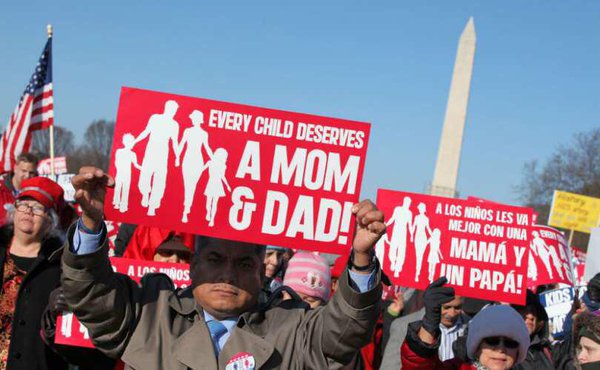 Currently, there are laws, standards, and practices that–when combined–constitute discriminatory policies in Family Court jurisdictions particularly against fathers. By extension, these violate the rights of children.
Currently, there are laws, standards, and practices that–when combined–constitute discriminatory policies in Family Court jurisdictions particularly against fathers. By extension, these violate the rights of children.




